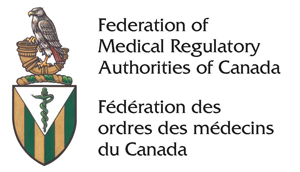Preamble
This Framework proposes recommendations and minimum regulatory standards to the members of the Federation of Medical Regulatory Authorities of Canada (FMRAC). It is intended to help inform the development of the medical regulatory authorities’ policies and guidance to physicians and promote pan-Canadian consistency. It is incumbent on each medical regulatory authority to develop policies and approaches to ensure effective regulation of physicians with health conditions. In addition, the implementation and timing will be determined by each medical regulatory authority.
Statement
FMRAC and the MRAs believe it is important to have consistency in how they identify and proceed with a physician who has a health issue.
Principles
The following principles underpin the development and application of this framework:
a) capacity:
The physicians’ ability to carry out bona fide occupational requirements of their work will be the central consideration, not the actual health condition per se.
b) consistency:
The assessment process is applied in the same way over time, across different circumstances and different assessors.
c) collaboration:
The process of working collaboratively with physicians and other stakeholders, as possible, when applying this framework.
d) fairness:
The assessment process and decisions strive to be equitable, and in compliance with best practices in managing health conditions in the workplace.
e) justifiability:
Assessment process and decisions articulate rationales are procedurally fair, and are demonstrably defensible.
f) intrinsic value and dignity of all people:
This extends to inalienable rights that a physicians have to confidentiality of their information, informed consent, and respect for the personal autonomy of as an individual.
g) patient safety:
The assessment process is primarily focused on the need to ensure the safety of the impaired physician’s patients.
h) respect:
The appropriate consent of process and the right to confidentiality. Respect is not simply acceding to the physician’s wishes.
i) timeliness:
To the extent possible, the assessment process will take place in a timely manner.
j) transparency:
Physicians with health conditions may expect to be apprised of the assessment process in a manner that is accessible and easy to understand.
Recommendations
FMRAC recommends that the following be adopted by all MRAs:
1. Functional Capacity: When assessing a physician’s fitness to practice this should be based on their functional ability to perform the tasks involved in their own job (bona fide occupational requirements).
2. Deemphasizing diagnosis or treatment: While information such as diagnosis and treatment are important in that they can predict potential functional concerns (both type and trajectory) they should not, by themselves, be sufficient to lead to an automatic restriction or limitation of practice. Rather, the impact on function is the relevant factor.
3. Current Function (not past or future): Current function is the important consideration. While past and potential future function are potentially relevant as predictors of the time course of an impairment current function determines current fitness to practice.
3.1 Monitoring will be considered as appropriate.
4. Accommodations: Accommodations to the point of undue hardship need to be considered when determining fitness to practice.
4.1 While a medical regulatory authority does have an influence on accommodations that can be made by a health care institution, it does not have ultimate control over the workplace, nor whether the workplace will provide the physician with employment.
5. Reporting (self and other) should be non-adversarial and non-stigmatizing: There is no single reference standard of function which can be applied to assess a physician’s fitness to practice at the present time. Rather it is inevitably, to an extent, subjective. Nonetheless it must be based on the fit between function and job tasks.
The reporting process should be non-punitive and non-stigmatising to minimise any possible impact both in terms of discouraging reporting and discouraging physicians from seeking medical treatment when needed.
6. Independent medical evaluations: An independent medical evaluation is carried out by a clinician other than the registrant’s own personal care provider. There is a mechanism in place clearly to describe when an independent medical evaluation is required. The MRA may wish to ensure the principles listed earlier in this document are duly considered.
7. Least restrictive measures: Following the independent medical evaluation, there will be a determination of the least restrictive measures required to ensure patient safety.
